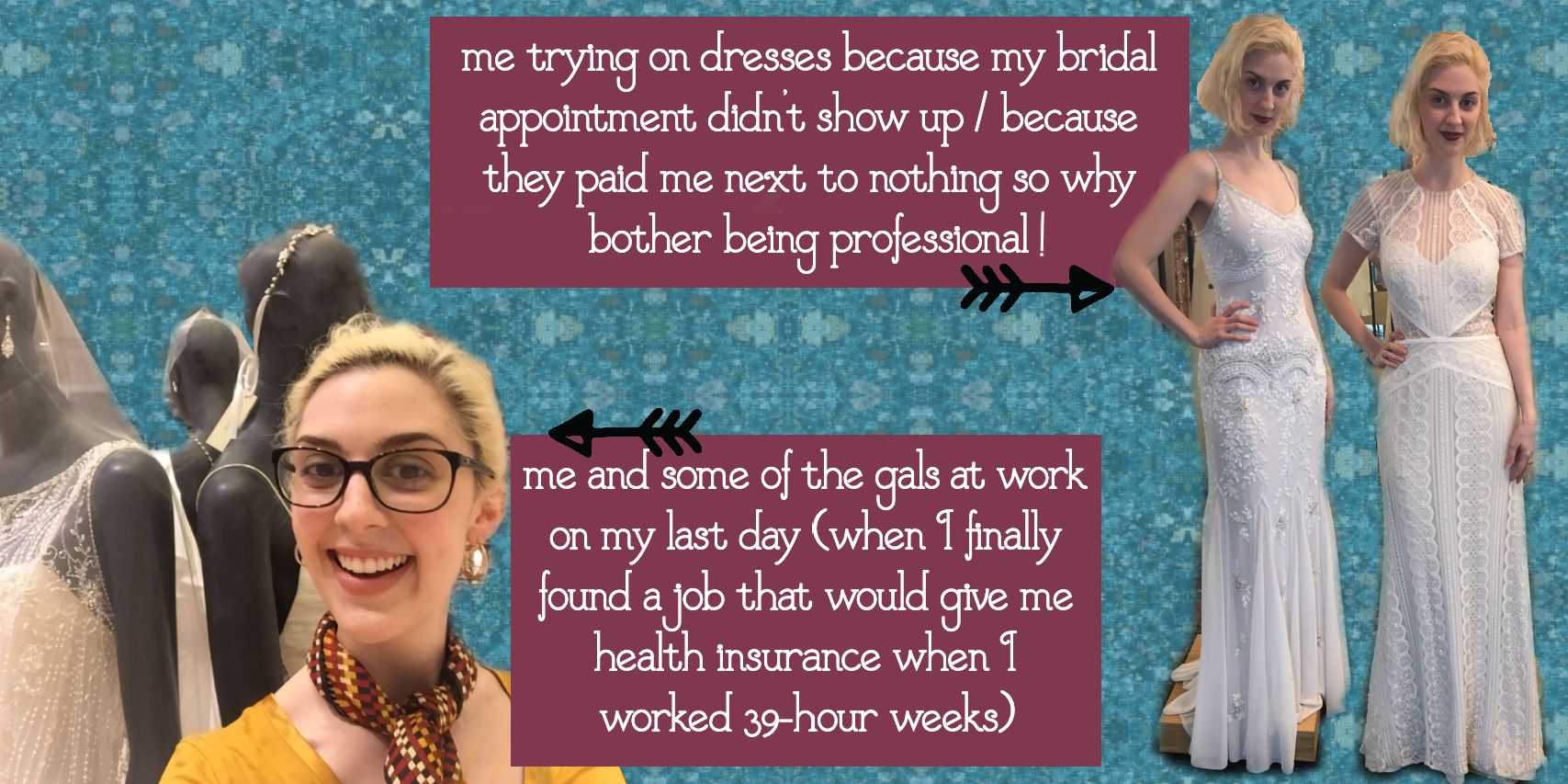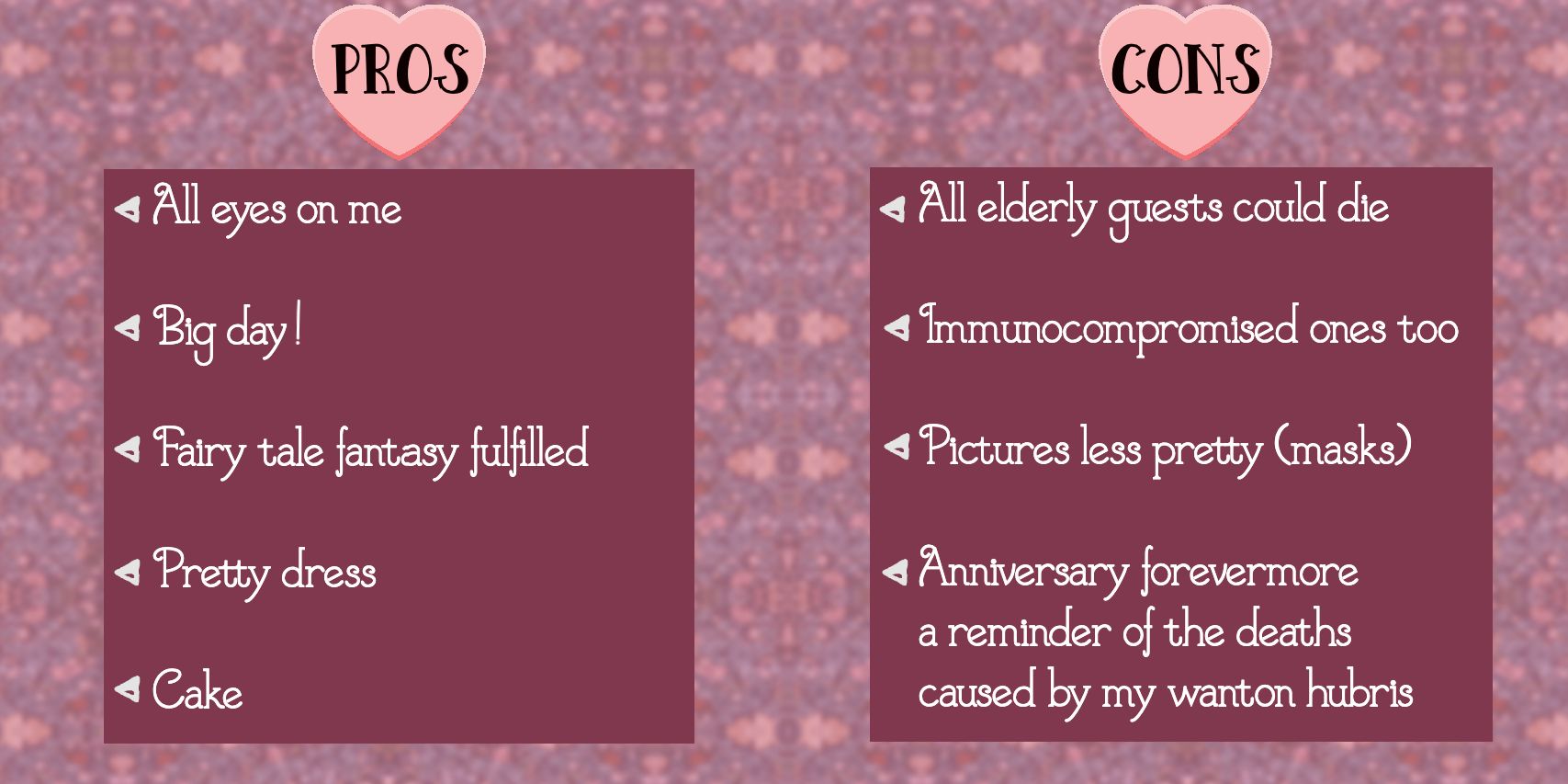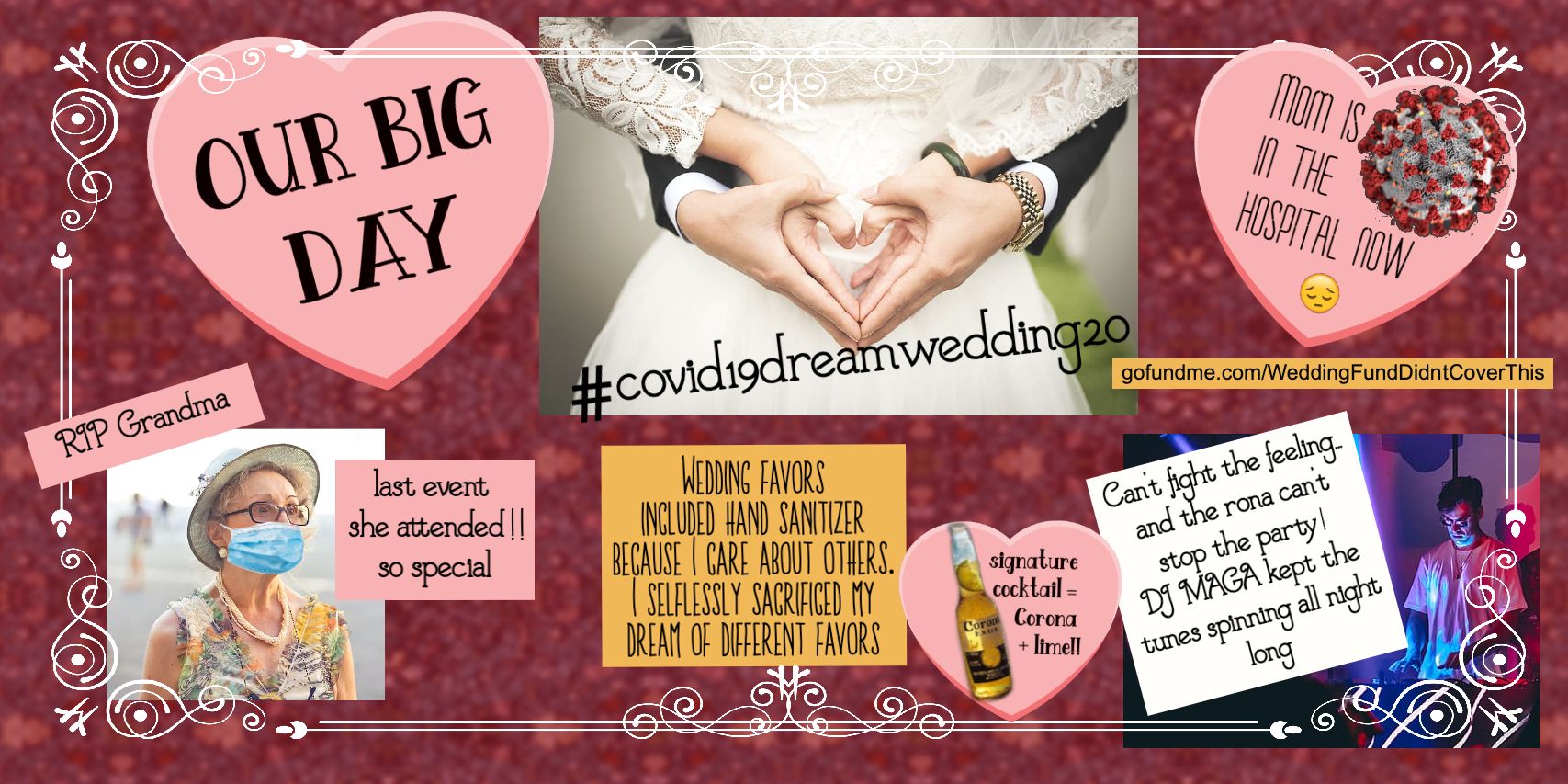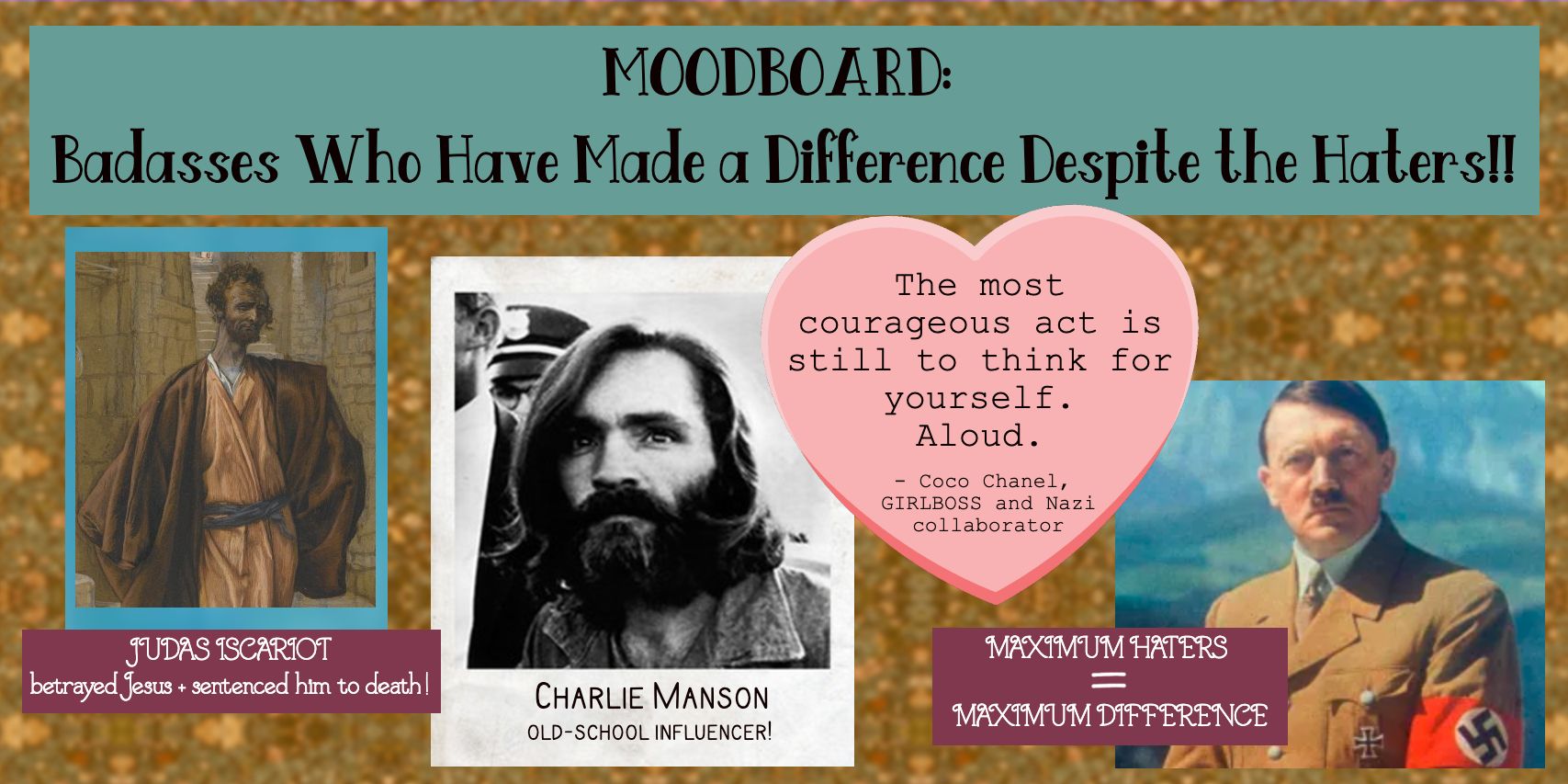Sometimes your feelings are wrong!
A PSA for anyone selfish enough to throw a big wedding in 2020 💕

If I were to make an honest list of all the things in this world that make me happy, making fun of nonsense online and weddings would both probably crack the top ten. I’m cynical and critical about a lot of things, but weddings fill me with so much joy. I love the creativity and care that goes into planning a wedding. I’m so passionate about them that I used to work as a bridal stylist!

Because I delight in a well-planned wedding and enjoy the schadenfreude of snarking at ridiculous bullshit online, I take a special pleasure when a story falls in the Venn diagram of those two things. Which is pretty often! Reddit’s “Am I The Asshole?” forum is a cornucopia of betrothed monsters, for instance, and similar chicanery in the wedding blogosphere usually makes its way to Twitter.
That’s how I found out about a nightmare manifesto by a bride-to-be named Heather. Titled “A friendly PSA from a tired 2020 bride,” it’s a stunningly self-centered list of the ways in which she, more than anyone, is suffering this year just for insisting on having a wedding in the middle of a pandemic. I normally wouldn’t try to start beef with what appears to be a small blog, but this post in particular is advocating willful negligence that could lead to multiple deaths, so it feels justified.
The thesis of her “PSA” is that those who are still planning on having weddings in 2020 are “doing their very best” and should not be criticized. For context, the CDC advises that “large in-person gatherings where it is difficult for individuals to remain spaced at least 6 feet apart and attendees travel from outside the local area” pose the highest risk for contracting COVID-19. That description exactly describes a wedding! Indoor gatherings are the most dangerous, but outdoor events still pose a threat. Some risk factors for outdoor events include talking loudly, being closer than 6-10 feet away from someone outside of your immediate household, and sharing food receptacles, all things that have occurred at every wedding I’ve ever attended. In other words, weddings are high-risk events. Heather does not believe that she should be criticized for holding a high-risk event.
Heather complains that planning a wedding in 2020 does not feel like “dream come true” or “a fairy tale brought to life.” She whines that other brides hear their guests say “‘we are so happy for you’ and ‘we are excited to celebrate with you’” while “the 2020 bride hears, ‘are you sure you should be having a wedding’ [sic] and ‘I’m coming but I’m afraid to be.’” Those things are bummers, to be sure. But this year has been nonstop bummers for everyone living through it and even bigger bummers for those who died. The fact that some brides are sad that their wedding planning process isn’t fun is not a compelling argument in favor of holding a large gathering. Furthermore, the fact that some of her guests are saying “I’m afraid to be coming to your wedding, though I’ve decided to risk my safety to do so” is not a reason to pity Heather. It is a reason to pity her guests, and she should consider that their fear and discomfort should outweigh her disappointment at having to hear about their fear and discomfort.
It seems that the right thing to do, then, would be to cancel the wedding so that her guests did not have to experience valid fear and be put at unnecessary risk. I would say that the intention to hold a wedding despite these fears and risks is selfish. Heather says this is not so!! “Understand that she sees no end in sight,” she says, “and no other bride and groom have been asked to put their name change, and personal commitment to each other, on hold for potentially years, and years, and years.” I would hope that a couple who has to postpone their wedding would remain dedicated to their “personal commitment to each other” regardless, but a small City Hall wedding would take care of both of these problems without endangering the couple’s friends and extended family.
More importantly, though, I’d like to note that the point of comparison should not be every other bride and groom who have ever existed. It’s true that couples in 2019, and 2017, and 1993 did not have to take COVID-19 into consideration. Couples who got married during World War II had to deal with butter and sugar rations that limited the kind of cakes they could bake, though, and fabric rations meant that brides had to adjust their wedding dresses accordingly. Those restrictions weren’t in place before the war, but couples still complied with them because they understood why they were necessary. I’m sure that there were brides in Pompeii who saw Vesuvius start to go off and were like “dammit, this was supposed to be MY SPECIAL DAY!” but they probably started running when the lava started spewing. You have to meet the historical moment at hand. You can’t just yell “It’s not fair!! Other brides didn’t have to hear their guests complain about volcanic ash! Why can’t everyone just be happy for me?!”
Heather never meaningfully examines what it would look like to cancel or postpone her wedding, just dismisses the concept out of hand. She simply says that it would be difficult “financially and emotionally” to do so. Every decision made in 2020 is difficult financially and emotionally, because the economy is collapsing due to an unprecedented danger that impacts every aspect of human life. The only way we can get through this is if every single person does their part to stop the spread. Minimizing the risk of infection, death, and further spread of this disease is more important than the emotional burden of postponing your wedding. It’s more important than literally anything. Over 5 million people have gotten COVID-19 in the US, and we’re approaching 200,000 deaths. Death is very difficult, financially and emotionally, for families to bear. A hospital stay and the subsequent recovery process for those who survive it can still be very difficult, financially and emotionally.

However, Heather asserts, “In the same breath” — an interesting turn of phrase for someone ignoring a respiratory plague — “please stop assuming she does not care. She wakes at night thinking of those coming far more than she thinks of herself. She is thinking faster than she is sleeping at 2 AM.” I don’t know how one sleeps “fast” under the best of circumstances, but it simply does not seem that Heather could be thinking more about her guests’ safety than her own happiness if she has not seriously considered cancelling the entire event. “Instead of stressing about colors, pictures, or dinner platters, she is mapping out the distance between chairs, getting rid of all pre-planned wedding favors,” she says, as if that’s a meaningful sacrifice, “instead budgeting for masks and sanitizer for every guest, and determining what else she’s always dreamed of that she can throw away for the sake of everyone’s safety.”
I am not currently engaged or planning an upcoming wedding. The sacrifices I’ve had to make in 2020 are less dramatic, things like “having a job,” “dating,” “visiting my elderly grandfather, who has a chronic respiratory illness,” “seeing my mother,” and “throwing the sick roller rink birthday party I’d started to book in February but rapidly had to cancel.” But I do understand the desire to have a perfect wedding. That’s why I worked in the wedding industry! I love planning all the little details, and I know what it’s like to have a specific vision for your day far in advance. Look, I’ve had a theme in mind for my 30th birthday party since I was 12, and I’m already furious in advance that we probably won’t have this thing contained by March of 2021. Obsessing over themed events is my entire jam. So I’m asking this seriously: is it worth it to barrel forward right now? Are you fine with guests trying to dance in masks? Is that how you want the event photos to look? Do you want to spend the entire day stressing that the surfaces aren’t being sanitized frequently enough? There’s no easy answer here, but there is a compelling moral reason to make the difficult call.
Consider — seriously consider — any alternatives. You could, for instance, spend a chunk of the money you’ve saved on a great photographer in the locale of your choice. Get a COVID test to make sure you’re not going to kill this great photographer, and stock up on masks to wear every time you’re not on camera. Then go to the mountains, a lake, the beach, or wherever you picture your Pinterest fantasy, and take stunning pictures in your wedding attire. Make a cozy honeymoon out of the trip and send high-quality prints of your photoshoot to your grandparents with a note that says “We’re so happy no one has infected you with the airborne illness that especially targets the elderly! We can’t wait to see your alive bodies at our wedding celebration once this is all over!” Plan a safe, responsible wedding gathering once we’re not smack dab in the middle of this crisis.
If you’re worried about your grandparents or a sick loved one not making it until next year, well then BOY HOWDY, is it even more imperative for you to do everything in your power to minimize their risk! That means holding zero gatherings with them in attendance. None! Not a smaller one, not an outside one, nothing that could increase their risk at all! Hire a videographer and an officiant to film a small ceremony in your backyard or something. Record a special message at the end for your loved ones, then mail them a DVD. Livestream it for your friends and relatives who are tech-savvy enough to tune in, then upload the video to your wedding website.
Is it the same? No. It’s not. But as the Rolling Stones once said, “You can’t always get what you want / but if you try real hard / you can make sure you’re not personally sentencing your grandparents to a painful, violent death, forcing them to spend their lonely, tragic final days in quarantined ward as their lungs degrade and fill with their own blood, giving them the sensation of drowning until their system shuts down.”

But Heather will not consider these options! She will not livestream her wedding, because “weddings are not typically made to be a couch convenience.” No, her big day is far too important to be made available to anyone who can’t travel safely.
But, Heather insists, she should not have to hear any of this. In fact, she should be told that she’s doing fine and her choices are correct. Heather says of a 2020 bride like herself:
“She cannot possibly understand everyone’s unique situations or beliefs, but she has the utmost respect for each and every one of them. But also know that your yes or no does not have to come with an opinion or political stance. ‘I’m sorry, I won’t make it’ is sufficient. ‘Your wedding is unsafe, so-and-so should not be going either’ is outright hurtful.
Please understand that she is drowning in guilt. She feels guilt for those who cannot make it, and she feels guilt for those who are, but are fearful. She feels fully responsible for each and every outcome in all directions. To hear, ‘it’s not on you’ would mean more than you could imagine.”
She repeats this plea later, insisting that you “tell her it’s okay. Whatever she is doing, whatever she is feeling, tell her it’s okay,” and “if you don’t agree, tell her nothing at all.” Again, it’s interesting what she prioritizes here. Hearing someone state that her wedding is unsafe is “hurtful” — to her feelings, presumably, as the literal hurt would be inflicted on anyone whose body would actually suffer if they were to catch coronavirus.
“Please stop telling her she’s wrong, she’s unsafe, or she’s selfish,” concludes Heather. “Please stop telling her what she should or shouldn’t do, or that you’re fearful for her day, her decisions, and her guests.” Such information, apparently, is merely “an opinion or political stance,” as if the actual guidelines for safety have not been established by numerous experts. Heather claims that “she is in constant communication with the state health department, the county health department, and her venue” and “works HARD to keep up with multiple states at once to be in the know for her guests.” But doing so certainly would inform her of the obvious risks to holding a wedding. It seems, therefore, that the question she is asking these experts “how can I still throw a wedding?” and not “in your honest opinion, is it a good idea to throw a wedding?”
The thing is that it’s not okay to hold a big wedding, and it’s fully on her to assess the risks and cancel her event. She is wrong, unsafe, and selfish to go through with this plan despite the risks. Her guests might be worried about money right now, possibly having lost their jobs, and can’t fathom paying the various costs of attending a wedding. Many people will have to travel, increasing their risk, and then they’ll travel back, increasing exposure around the country. The wedding staff will be at risk, it’s worth noting, because service workers are people too. There is no way to completely eliminate the risks and still have a “wedding” in any recognizable sense. Guests will take off their masks to eat, then speak loudly to be heard by others at the table. Guests will get closer to their loved ones to hug them or to hear what they’re saying. It’s human nature. There is no way to ensure that every person remains 6-10 feet away from every other person for the entire event. If they do, they probably won’t have a good time.
In a deeply self-aggrandizing follow-up post, Heather attempts to clap back at the “internet trolls” who criticized her PSA and told her that she could be responsible for deaths that “actually no, I’m not responsible for.” She proclaims that, in advocating that couples be free to plan superspreader events without criticism, she “allowed [her] most vulnerable self to shine through on a blog” and was still met with vitriol. She asserts that “you’re not making a difference if you don’t have haters,” unfortunately confusing causation with correlation.

I’ll never understand why people start blogs if they aren’t good at writing and have nothing more interesting to say than “be nice to me,” and yet I feel the need to interrogate this one because of the truly toxic messages that it espouses. This post is particularly bad. Her wedding PSA, with its self-pitying references to horrors like “describing floral over the phone,” was almost as amusing as it was annoying, even if its fundamental thesis was legitimately dangerous. But this post is far more infuriating. In it, Heather bemoans the state of a world in which people argue. “If you wear a mask, you are wrong. If you don’t wear a mask, you are wrong,” she writes with exasperation as an example. But there’s scientific evidence that shows that wearing a mask is of vital importance! One option is, in light of everything that we know to be true, wrong. It’s morally and scientifically incorrect.
But apparently, pointing that out contributes to “the constant aggression, judgement, and shaming of one another” that she says “makes [her] feel sicker than a virus ever could.” She adds later, “The way we treat each other, the way we speak to each other, the way we speak ABOUT each other, THAT is the pandemic.” I simply do not have space to get into how offensive that bit of hyperbole is to people suffering from actual viruses, and it wouldn’t matter anyway. Heather seems to ascribe the same weight to every belief that one might to a preference for coffee over tea. “If you believe all lives matter, you are wrong. If you believe black [sic] lives matter, you are wrong. If you respect the police, you are wrong. If you want to defund the police, you are wrong,” she says. There’s simply no way to make an assessment on who is right in any of these situations! Someone will tell you you’re wrong whether you believe that Black people shouldn’t be murdered by corrupt agents of the state or if you merely have respect for those doing the murdering. What’s the solution here?
The solution, Heather says, is to accept everyone’s beliefs: “We live in a culture of ‘you’re wrong’. If your beliefs don’t match my beliefs, you’re wrong. And can we all agree the premise of that theory is EXHAUSTING and, in fact, getting us nowhere near a state of actual healing?” Her thesis here is helpfully laid out in bold: “We can still believe what we believe and also respect what someone else believes.” When confronted with “haters” insisting that she should feel ashamed for refusing to sacrifice her big day for the health of everyone in the country, she says that she merely repeated this mantra to herself: “My feelings are valid. My beliefs are valid. I am not wrong. But also, your feelings are valid. Your beliefs are valid. You are not wrong.”
My turn for bold letters: I do not know how to communicate to Heather that this belief is, itself, very wrong!!
A belief is not valid simply because someone holds it. Scientists have a whole method that they use to devise what is the objective truth so that we can understand the world better and form our beliefs based on this knowledge. That’s why it is wrong to believe, despite evidence, that you shouldn’t wear a mask, that the Earth is flat, or that vaccines cause autism. Journalists, similarly, work to uncover the truth. While there are certainly valid criticisms of the news media as an industry, good reporters give voice to important perspectives, consult data, and fact-check their sources to provide information about what is happening in the world. Some news sources are more valid than others. These are all things that can be analyzed to learn about the world around you.
When writing my post “How to radicalize friends and influence people,” I tried to interrogate ways of building support for a movement that were not simply performative or self-serving. I wrote about the importance of listening to different perspectives, although, I added intentionally, “It feels facile to say that the way to building a movement is to simply talk to other people more.” I wanted to address subtle differences in communicating a message and activating people who are sympathetic to a cause but not actively participating in it. I stated clearly that this would not be enough, but rather just a start.
Heather, however, thinks that talking and listening is the final step for crossing the vast political divide:
“I’m not saying we have to greet everyone’s thoughts, opinions, and actions with a bear hug and a homemade cookie. We don’t even have to agree. But we HAVE to start listening. We have to start LISTENING. But we have to start listening to – wait for it – THOSE WE DISAGREE WITH. We have to start listening to those we don’t understand. To those who live a much different life than us, and feel much different feelings than us. We’ve conditioned ourselves to speak to, and listen to, only those that agree with us.”
Of course online echo chambers are a problem, but I don’t see how this positivity doctrine helps if Heather’s definition of “listening” is civilly saying “agree to disagree!” with such haters as health experts urging her not to hold a high-risk event or Black people asking not to be targeted by the police.
What it seems that Heather wants, more than “actual healing,” as she put it, is politeness. (In another post on her blog, she devotes almost 700 words to her annoyance with people not smiling more in the grocery store.) She thinks that disagreeing is itself a problem and not a sign that people are addressing far more serious problems. In the Stephen Sondheim musical Into the Woods, Little Red Riding Hood narrowly escapes death at the hands of the Big Bad Wolf and looks back on what had led her to trust him. He’d seemed so kind when dressed up like her Granny or when greeting her on the path earlier in the day. Little Red sings of the lessons she learned, concluding with one simple revelation: “Nice is different than good.”
Into the Woods is a musical about fairy tales for children, and yet some grown-ass adults still can’t wrap their minds around the fact that nice is different than good. Shame doesn’t feel nice, but people shame others for refusing to wear masks or for holding big events right now as a way to try to impose a moral good.
I don’t know Heather, which is probably for the best for us both, because I don’t support her writing dreams and she seems hellbent on killing her friends and family. I can’t imagine that this post, if she reads it, will actually change her mind, because she seems to think that criticisms are merely opinions or political stances. (To that point, by the way, I’ll add that everything is political and ignoring politics is something you get to do if they don’t impact your life!) I’m assuming that she will keep writing and I’ll never look at her blog again, which is, again, a best-case scenario for us.
I hope that giving more attention to her terrible posts doesn’t create a monster like when people rage-share Tomi (sp?) Laren (sp?), Gun Girl, or Ben Shapiro. But I don’t see that happening, because her opinions aren’t very interesting and her writing is full of Wiseau-like sentences like “The attack on others [sic] moral compass and set of values in their back pocket is what keeps me awake at night” and “The repugnant, loathsome, and intensely offensive humanity we now embody is my complete and recurrent nightmare.”
This newsletter doesn’t have that much influence, but Heather, if you read this: there is no value to merely accepting others’ beliefs without deeply examining them as reflections of moral conviction. This goes for your own beliefs as well! Respond to opposition by asking why others think that you are wrong and inquire if, perhaps, you actually are. As an example, when the CDC says that there is a high risk to throwing a wedding, your response should be to carefully consider if your emotional attachment to your wedding is obscuring your analysis of the objective facts. If confronted with new information that shifts your beliefs, adjust your actions accordingly. Every belief leads to real-world actions with real-world consequences. Otherwise, there’s no point in “talking and listening.” You have no intention of hearing what’s being said.
More like this:
“ALL cops, you say? Even my uncle?!”
“EXCLUSIVE transcript from a podcast about the GENIUS CEO of a FAILING STARTUP”
